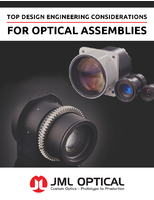Delphi's Halogen-Free Automotive Cable Making European Debut at Frankfurt Show
Utilization of GE's Flexible Noryl* Resin Will Allow for 'Class C' Wire Alternative with Additional Performance Gains
FRANKFURT, Germany, Sept. 13 -- Delphi Corporation's (NYSE:DPH) role as a technical leader in the design and manufacture of advanced electrical/electronic distribution systems has been strengthened with an innovative automotive cable coming to market through a cooperative effort with General Electric.
Delphi is formally introducing its new halogen-free, recyclable cable to the European continent, a new wire family with insulation made with GE's Flexible Noryl* Resin that can help automakers meet pressing environmental and performance challenges.
Having already made its global debut at GE's Washington D.C. "ecomagination" introduction, Delphi's new cable, with its insulation composed of GE's PPO* resin, is now being presented to customers in Europe, where it's positioned well to respond to a growing trend among the region's automotive manufacturers. It is being showcased at the 61st International Motor Show (IAA) in Frankfurt.
"We are seeing a strong tendency with customers in the region to grow their volume of Class C cable in applications under the hood of the vehicle," said Dieter Barowski, director of engineering in Europe for Delphi's Packard Electric division, referring to cable tested and rated to 125 degrees C. Delphi is in the final stages of successfully completing the development of its halogen-free cable tested and validated at Class C levels.
"Our new cable will reach the market as a very cost-competitive alternative to what's currently available, and it will also bring with it several other performance benefits," said Gerhard Mertes, European business line manager of Electrical/Electronic Distribution Systems. He also noted that Delphi expects the presence of Class C-rated cable to more than double in the next few years, as automakers move toward wiring harness solutions that are better equipped to withstand the harsh conditions and meet the unique challenges within the engine compartment with greater longevity and reliability.
Delphi's PPO-based halogen-free cable will also offer automakers improvements in durability, with twice the pinch resistance and four times the abrasion resistance than conventional halogen-free alternatives. It also has a lower specific gravity, Barowski, pointed out, and offers the added feature of being a more environmentally friendly cable insulation.
"We are excited about the many benefits our cable will give customers, depending on their specific needs and unique challenges," Barowski said. "In meeting their requirements, we can bring them added improvements, physical properties based on toughness, tremendous flammability resistance, environmentally minded attributes, or size and weight reductions."
All European expectations can be met by the division's new advanced halogen-free cable, Barowski said, as customers and countries often have their own unique "add-ons" and validation requirements; chemical compatibility tests that are automaker specific, for example. "We are well into validating this cable for all the various performance and durability requirements, and have great confidence that customers will find it ready to meet their specific needs."
In May, Delphi and GE formally introduced the technology in the USA, one viewed by both companies as the first major automotive wire insulation breakthrough in more than 30 years.
Due to begin production in 2006 as a 2007 North American model year application, Delphi is responding to a specific customer request for a halogen-free, recyclable cable. While meeting those requirements, the cable brings weight and size reductions, owed in large part to its suitability to ultra-thinwall insulation coatings.
With insulation thickness cut in half without compromising durability, Delphi is able to provide weight savings averaging 25 percent on a finished cable product. Delphi Packard will have a validated application for the customer as small as 26 gage (0.13 mm2), which leads to a reduction in overall wire diameter average of 28 percent.
"This means much smaller bundle size reductions, and the ability to place more wire per pack. This could allow for more space for customer features, a critical advantage as today's vehicle designs continue to reflect consumers' preferences for more sophisticated, feature-heavy offerings," said Ed Monroe, Delphi's global program manager for halogen-free cable. "Space constraints are forcing automakers to find unique ways to package vehicle content; bundle- size reductions allow OEMs to meet those challenges and offer opportunities to grow electrical/electronic features through this space-saving potential."
*Noryl, PPO and ecomagination are trademarks of General Electric Company.
CONTACT: Doug Hoy of Delphi Corporation, +1-330-373-7647, douglas.d.hoy@delphi.com




